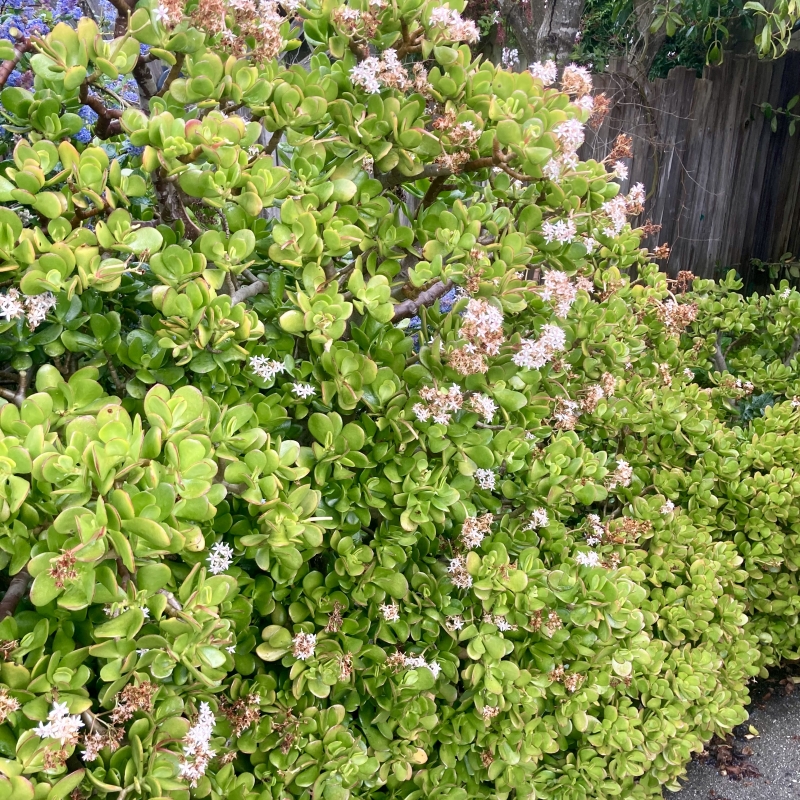

| height | 2–5ft | |
| width | 2–3ft | |
| tolerates | Coast, Cool Summers, Drought, Deer , Fog, Gophers, Heat, Pots, Rooftops, Neglect, Salt, Wind | |
| water needs |
Lowest | |
| water info |
Crassulas in general are quite drought tolerant, and these larger ones with tree-like form are extremely drought tolerant. They store water in their thick succulent stems, so in coastal California, they won’t need supplemental irrigation once established. To keep them looking lush during summer, water them every two weeks to a month, or whenever the leaves start to shrivel up and fall off. | |
| hardy to |
30F | |
| exposure | Full Shade – Full Sun | |
| indoor outdoor |
Outdoor | |
| drainage | In Ground: Cactus Mix, In Pots: Cactus Mix, Tolerates Sandy Soil | |
| origin | NE South Africa | |
| california native |
No | |
| sunset zones |
12, 13, 15–24 |
Full Sun
Six or more hours of sun beams directly landing on the plant's leaves.
Part Shade
Three to five hours of sun beams directly landing on the plant's leaves.
Part Sun
One to two hours of sun beams directly landing on the plants leaves.
Full Shade
The plant is never fully lit by sun beams,
but is in a bright spot or has dappled sunbeams playing over the leaves throughout the day.
Deep Shade
The plant never has dappled light on the leaves, and is in a place that feels dim, even on a nice sunny day.
